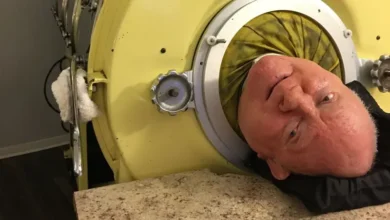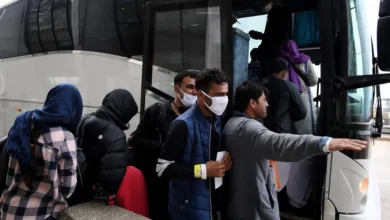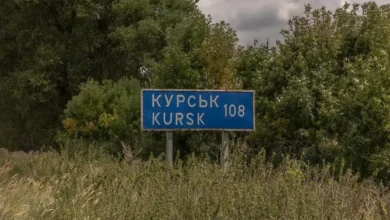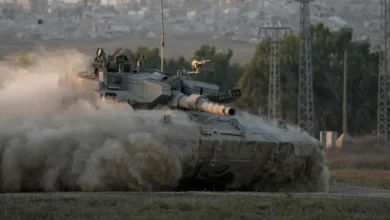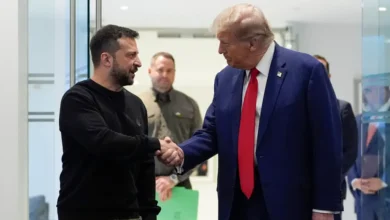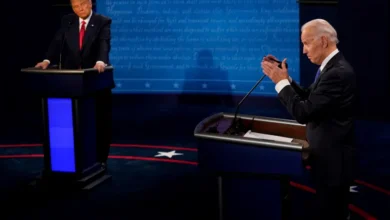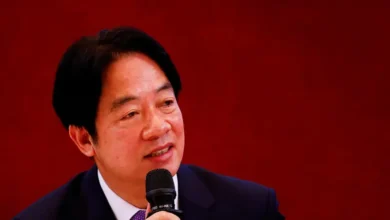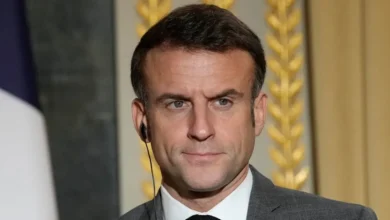35 years ago: The fall of the Berlin Wall
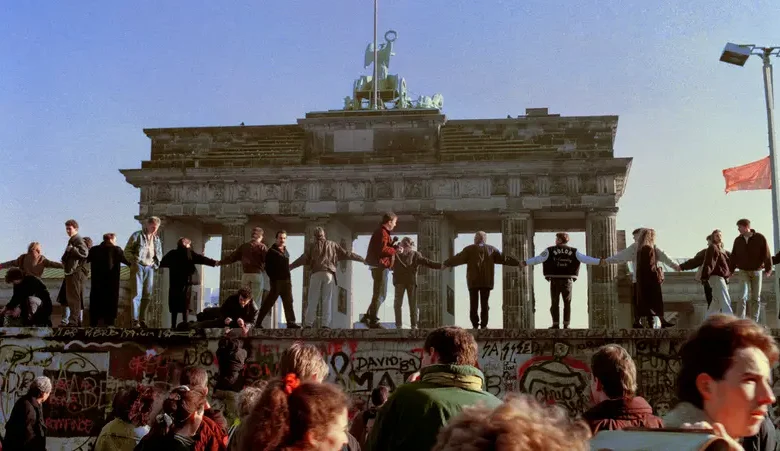
Almost everything appeared like routine at the German Democratic Republic’s (GDR) ruling party’s Socialist Unity Party of Germany (SED) press center at Berlin, Mohrenstrasse on the evening of November 9, 1989.
Indifferently, Gunter Schabowski (1929-2015), Secretary of Information for the party, made new announcements regarding the powers’ latest decisions.
Contrary to what he tried to display, the past months had been anything but routine. Faced with empty coffers, waves of people fleeing the GDR through allied neighboring countries and shaken by mass protests of angry fellow citizens who demanded reforms that even the feared state security Stasi seemed unable to quell the wind of change was in the air.
Pressure on the ruling party had become immense.
Change did not seem evident this evening until Schabowski made a revolutionary announcement: citizens of the GDR would be allowed to travel abroad legally; passports would be issued and travelling permits granted “on short notice.”
His announcement pricked up the ears of those in the room.
Until then, travelling freely had been a privilege only for a few in the GDR. Soon after its foundation in 1949, the Workers’ and Farmers’ State, as it labeled itself, did not seem so attractive after all. Until 1961, almost 2.8 million people left the new republic seeking their luck in the west, the majority of them under 30 years old, according the West Germany’s Federal Ministry of Displaced Persons, Refugees and War Victims.
To save their citizens from the temptations of capitalism and their economy from losing its workforce the ruling party resorted to drastic measures.
Borders were shut down in 1952.
In 1954, a new passport law made any unauthorized crossing abroad a criminal act punishable by prison.
What had been a privilege for only a few was now to become a right for everyone. When asked at what time the new regulation would take effect, Schabowski, not fully briefed and apparently overstrained, looked at his paper, saying few – but meaningful – words.

“As far as I know… effective immediately, without delay,” he muttered.
He made the announcement of the new regulation ahead of schedule. By mistake. Originally, it was supposed to be broadcast the coming morning at 4am on national radio.
His words which until today are humorously used in Germany on any given occasion would hit the evening news in West Germany and around the world setting off an avalanche no one could hold back.
Rainer Eppelmann remembers how he got wind of the news.
The then 46-year old pastor, opposition activist of the political movement Democratic Beginning and later Minister for Disarmament and Defense of the GDR’s one and only freely elected government in 1990 had just returned home when a colleague and neighbor passed the news on at around 8pm.
“Did you hear it? They say the wall is open.”
Unarmed guards
Eppelmann who had passed almost his entire life in the GDR was astounded. He and his colleague entered the car and drove to Bornholmer Strasse.
Bornholmer Strasse was one of the ways to cross the Berlin Wall, the very symbol of injustice and the division of not just Germany, but almost the entire world. Being built in 1961 to plug the final loophole for those trying to flee the GDR it had cut the city of Berlin in two and separated families for decades. Heavily guarded, it made any attempts to escape into the west virtually impossible.
Those who would defy it regardless took a terrible chance with their lives. Over a hundred people died trying to overcome the barrier, according to the most recent available figures by the Germany’s Federal Agency for Civic Education.

The two neighbors and colleagues stopped before they reached the crossing and walked on a bit.
“About a hundred people were standing there,” Eppelmann remembers. The mere sight of them would have been unthinkable only a day earlier. Border patrols would send anyone away stopping there on suspicion of planning an illegal crossing.
Eppelmann and his colleague approached the barrier and saw the border patrols on the other side. He recalls that they looked like they were unable to cope with the situation.
“There they were. Unarmed.”
More people began to pour in until their numbers reached thousands.
“A man next to me told the patrols: ‘Come on, open up! Schabowski has said we can cross over.’”
The borders open
As pressure mounted, the commanding officer gave in and ordered his men to open the barriers. People crossed over into West Berlin. Eppelmann and his colleague, however, remained where they were overwhelmed by the situation.
“I wouldn’t have known what to do over there,” he says. “I had no western currency and wouldn’t have had the means to buy even a mere drink.”
As people crossed the border at Bornholmer Strasse, news made their way to the other border crossings with people also itching to cross over. They got what they wanted.
Many were tear-eyed, Eppelmann recalls. “They had waited for this for 40 years. Not to be forced to adapt anymore.”
He had experienced the oppression at the hands of the GDR first-hand. Due to his firm will to stand against the tide the state had denied him his wish to become an architect and even thrown him in jail.
Eppelmann recalls how he felt that the circumstances were finally different.
“Now, your life will be completely different from what it used to be.”
The Berlin Wall, once the symbol of fear, had lost its effect.
With people now crossing it at their whim, climbing on it and dancing on top to celebrate their newly gained freedom it became little more than just a symbol of ridicule soon to be reduced to rubble.
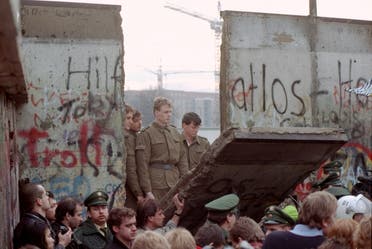
The GDR was to meet the same fate.
The Berlin Wall turned out to be more than just one of its major pillars. It had become the state’s lifeline now leaving the body moribund.
Less than a year later, on October 3, 1990, Germany was ceremoniously reunited, the GDR ceased to exist. Risen from ruins, it had descended back into them.
